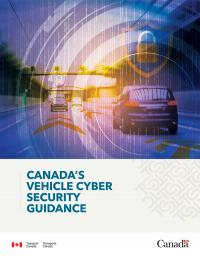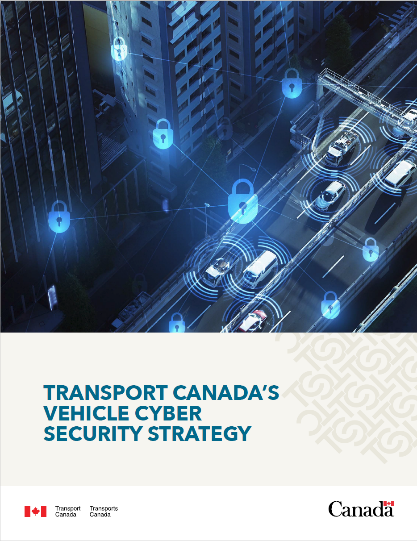Vehicle cyber security is a complex and evolving issue. The introduction of connected and automated vehicle technologies and intelligent road infrastructure is changing our transportation system. These technologies can help support road safety, and can also provide potential economic and environmental benefits. At the same time, we need to protect vehicle systems and technologies against cyber security threats.
That is why Transport Canada is working with all levels of government, industry, manufacturers, service providers, and other countries to better understand vehicle cyber security threats, and highlight the importance of building cyber resilience in our transportation system.
On this page
Vehicle cyber security resources
Transport Canada has worked with federal departments, industry and cyber security experts to develop a suite of guidance and tools on vehicle cyber security. These resources can help industry stakeholders develop organizational vehicle cyber security strategies. Together they provide useful information on vehicle cyber security threats, best practices for maintaining a strong cyber security posture, and opportunities for alignment within Canada and with our international partners.
Canada's Vehicle Cyber Security Guidance
These guidelines set out technology-neutral guiding principles to strengthen cyber security throughout the vehicle lifecycle. The principles within the Cyber Guidance encourage organizations to:
- identify how they will manage cyber security risks;
- protect the vehicle systems with appropriate safeguards;
- detect, monitor and respond to cyber security events; and,
- recover from cyber security events safely and quickly.
Canada's Vehicle Cyber Security Guidance (March 2020) (PDF, 3.48 MB)
Transport Canada’s Vehicle Cyber Security Strategy
The Strategy outlines a roadmap to guide our collaborative efforts to support vehicle cyber security. The Strategy focuses on three main priorities:
- Incorporating vehicle cyber security considerations into policy and regulatory frameworks;
- Promoting awareness and fostering a modernized, innovative approach to vehicle cyber security; and,
- Addressing emerging and adjacent issues in the vehicle cyber security landscape.
Transport Canada’s Vehicle Cyber Security Strategy (August 2021)
(PDF, 2.29 MB)
Canada’s Vehicle Cyber Security Assessment Tool (VCAT)
Canada’s Vehicle Cyber Security Assessment Tool (VCAT) is a voluntary tool to help manufacturers and suppliers assess the cyber security performance and resilience of their vehicles and vehicle parts.
The VCAT includes a set of questions that apply to all vehicle types, regardless of their level of connectivity or automation. Stakeholders are encouraged to submit responses to Transport Canada. This information will be used to inform future policies, guidance, compliance activities and regulations.
Other resources
Transport Canada’s webpage on Safety resources for connected and automated vehicles (part of Connected and automated vehicles: what you need to know) also discusses vehicle cyber security considerations, as they relate to connected and automated vehicles.

